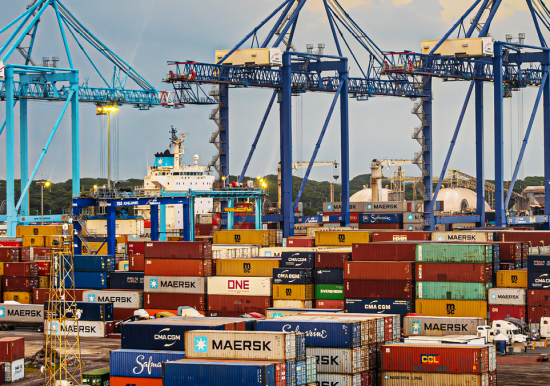
Contextual Capacity: How Countries Can Find Their Own Way to Good Governance
Kamel Ayadi, Member, Advisory Council, Chandler Institute of Governance
Kamel Ayadi has served in ministerial level positions, including as Minister of Governance and Anticorruption in the Government of Tunisia, then Minister to the Head of the State of Tunisia in charge of the high level Authority on Financial and Administrative Control (2016–2020). He is currently an international consultant on governance, ethics, and anti-corruption strategies. A member of the Board of Directors of the World Justice Project (Washington), he is also founding chairman of the World Leadership and Ethics Institute, and of the Global Infrastructure Anticorruption Centre.
How Governments can Make Good Use of Global Governance Reports and Indices
Global indices, such as the CGGI, offer a perspective that local measures and indicators cannot. They give countries a sense of whether local policies are producing results, and of how these results compare with others: with neighbouring countries, with other countries that are similar, and with the rest of the world.
These results can stimulate change because the global ranking becomes a challenge. Countries are in competition with their neighbours—for foreign direct investment, for instance—and so they need to project the best image of themselves abroad, which their global rankings in such indices can offer. These indices have credibility because of their independence as well as the special expertise they offer.
Global indices are the lens through which countries are seen from abroad, and they exert an impact that countries cannot ignore. For instance, a country’s rating by Standard and Poor’s (S&P) or Moody’s can determine the credit-worthiness of a country, and whether it can borrow money from international banks or from another country. Investors wanting to know about a country’s record in terms of its rule of law, governance, human rights, infrastructure, education levels and so on will refer to these indices.
Such indices can also help countries progress, and to develop a vision of where they want to be in future. The right indicators, coupled with appropriate training to help countries understand the underlying issues, can help governments to identify their own strengths and shortcomings, and improve their performance over time.
It may be easier to construct and publish a set of indicators than it is to help countries take advantage of it. The question, after first raising awareness of the issues underlying these indicators, is how to initiate reform to resolve them.
An important aspect of this is to complement global indices with local assessments tailored to the specific context of countries and regions being analysed. For example, if I want to use Transparency International’s Corruption Perceptions Index to address corruption in a country, I cannot, because it cannot tell me in which sectors corruption has increased and where it has decreased. It may be that only one sector is compromised but has skewed public perception.
For this reason, we should develop new tools and data to help governments go further into the details, so that these indicators can be used not just as tools for advocacy, or for blaming and shaming countries, but to support improvement. We cannot, for instance, initiate an anti-corruption strategy without the means to find out what has worked well and exactly what needs to be improved. So, we need more local indicators to complement the broader global measures that show you where you stand relative to other countries.
In the case of anti-corruption efforts, for instance, the trend now is to focus not on measuring corruption but on integrity. It is about defining and assessing your local integrity system, which is to say whether you have robust institutions to combat corruption; an independent and efficient judiciary, checks and balances, auditing bodies, as well as citizen participation, transparency, access to information and so on. So instead of saying whether a country is corrupt or not corrupt, what you look for are weaknesses in your system that may become an opportunity for corruption to increase. You combat corruption by building stable and robust systems and processes to maintain integrity.
Integrity and Good Governance Go Hand in Hand
The research I have done, based on different global indices looking at governance and the rule of law, indicates that good governance is strongly correlated with less corruption. They follow the same path. Accountability is associated with a high standard of governance; impunity implies a lack of accountability and leads to an erosion of trust. If you have bad governance, you will have corruption. If you want to improve governance in your country, you must improve the rule of law and its systems of accountability.
Now, the rule of law often rests on the independence and effectiveness of the judiciary. If you lack that, then poor behaviour goes unpunished, and you will have impunity. But ending corruption is not just about sanctions, tough measures, and rules. You also have to work on prevention. This means you have to improve your administration in general so that corruption will become the exception and good governance the rule. Once that has become the norm, you can then fight instances of corruption with rules and punitive measures.
Having greater rule of law also gives you more opportunity to think about better prevention systems, which will reduce the incidences of corruption to a level that the system can address without being overwhelmed. What happens in many countries, as was the case in the past in Tunisia, is that corruption is so rife—you simply cannot prosecute and send everyone to jail. So, you have to come up with a different, transitional justice simply to cope, even as you build up more robust governance, including better audit systems, better controls, better investigation.
You also need to teach people what the right thing to do is, because sometimes they step out of line and find themselves in jail because they did not know the right rules. Developing good governance also implies that you work on your human capacity and expertise.
Doing the Right Things Versus Doing Things Right
The most important factor in implementing reform is giving priority to human beings. The toughest obstacle to reform is human opposition to change. You can find resources, strategies and so on, but the most important question is how to turn that human resistance into a force for transformation.
When you are advancing reform, you need to have people on your side, not against you. You need to give them ownership of the project. In some countries, trade unions often try to stop reforms when they can. So, when you want to initiate change, you must consider how to persuade them to be on your side. Otherwise, you will have a strike the next day, and you will have failed as an official who is a good technician and technocrat but who cannot translate his knowledge and techniques into the local culture and political context.
Reform is not just about imposing rules and procedures; you can take the best rules, but they will be useless in the wrong context. For this reason, it is not appropriate to just copy and paste international best practice which was successful elsewhere into a different context. Each country needs to find its own way to do things, based on their context.
This is also why it is important to start by building local capacity. Local and international experts should work hand in hand, so that international knowledge can be assimilated and adapted for the local context. You need local experts who can understand the technical dimensions of the work, but also know how to consider the local culture and circumstances. We tend to forget that global tools and standards are intended for a different context.
I was part of an ISO expert panel drafting international standards. When I was a Minister in Tunisia I wanted us to be the first country to implement these standards, and I selected three state-owned companies to implement them. The experiment was not a success. What I realised was that experts tend to think all the time of the norms of the developed world, forgetting that these standards are also intended to apply to countries where there isn’t the same culture of standardisation and normalisation.
We must never forget that governance does not only have to do with procedures, rules and standards and best practices, but touches on a very wide range of dimensions, including the cultural and the human. You can change the rules and procedures, but you cannot easily change human behaviour.
When I started in anti-corruption work in 2005, our main approach was to provide the government and companies with tools and instruments to fight corruption. Now, tools like the ISO 37001 anti-bribery management standard, which I helped produce, are powerful if you implement them correctly. But I also realised that tools alone are not sufficient to address corruption—you must also work on human behaviour. It is not enough to teach them to do things right; to be in compliance with rules and procedures. You must also teach people ethical behaviour, what it means to do the right thing. And that requires a completely different kind of training and education.
In the end, best practice in governance is not about blindly adopting what rules and standards have worked elsewhere. Best practice is about changing human behaviour; to develop a culture and attitudes that are aligned to the desired outcomes that we need. It is about cultivating a sense of meaning, purpose and the greater good.

More Stories


Global Influence & Reputation Country Snapshot: Türkiye

